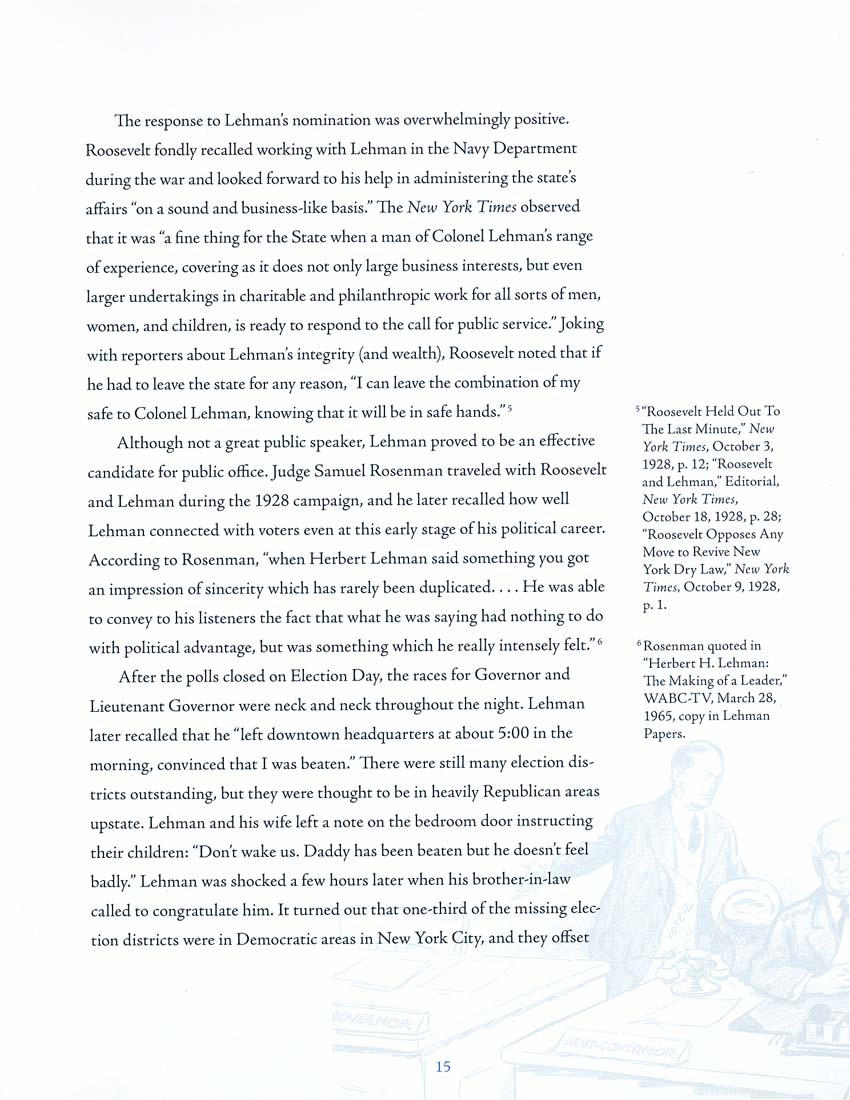The response to Lehman's nomination was overwhelmingly positive.
Roosevelt fondly recalled working with Lehman in the Navy Department
during the war and looked forward to his help in administering the state's
affairs "on a sound and business-like basis." The New York Times observed
that it was "a fine thing for the State when a man of Colonel Lehman's range
of experience, covering as it does not only large business interests, but even
larger undertakings in charitable and philanthropic work for all sorts of men,
women, and children, is ready to respond to the call for public service." Joking
with reporters about Lehman's integrity (and wealth), Roosevelt noted that if
he had to leave the state for any reason, "I can leave the combination of my
safe to Colonel Lehman, knowing that it will be in safe hands." ^
Although not a great public speaker, Lehman proved to be an effective
candidate for public office. Judge Samuel Rosenman traveled with Roosevelt
and Lehman during the 1928 campaign, and he later recalled how well
Lehman connected with voters even at this early stage of his political career.
According to Rosenman, "when Herbert Lehman said something you got
an impression of sincerity which has rarely been duplicated-----He was able
to convey to his listeners the fact that what he was saying had nothing to do
with political advantage, but was something which he really intensely felt." ^
After the polls closed on Election Day, the races for Governor and
Lieutenant Governor were neck and neck throughout the night- Lehman
later recalled that he "left downtown headquarters at about 5:00 in the
morning, convinced that I was beaten." There were still many election dis¬
tricts outstanding, but they were thought to be in heavily Republican areas
upstate. Lehman and his wife left a note on the bedroom door instructing
their children: "Don't wake us. Daddy has been beaten but he doesn't feel
badly." Lehman was shocked a few hours later when his brother-in-law
called to congratulate him. It turned out that one-third of the missing elec¬
tion districts were in Democratic areas in New York City, and they offset
= "Roosevelt Held Out To
Tlie Last Minute," New
York Times, October 3,
1928, p. 12; "Roosevelt
and Lehman," Editorial,
New York Times,
October 18, 1928, p. 28;
"Roosevelt Opposes Any
Move to Revive New
York Dry Law," New York
Times, October 9, 1928,
p.L
■^ Rosenman quoted in
"Herbert H. Lehman:
The Making of a Leader,"
WABC-TV, March 28,
1965, copy in Lehman
Papers.
|








